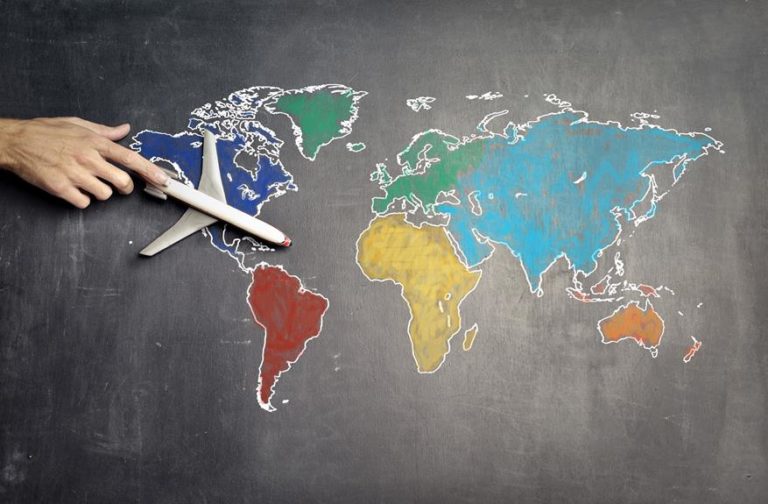Five Global Visa Requirements for Digital Nomads
Are you a digital nomad seeking adventure abroad? Before you pack your bags, it's crucial to understand the global visa requirements. From the Schengen area to the United States, Australia to Canada, the UK to Asia, and South America, each destination has its own set of rules. In this article, we'll explore the five essential visa requirements for digital nomads, ensuring you have all the information you need to embark on your international journey.
Key Takeaways
- Schengen visa allows for a stay of up to 90 days within a 180-day period, while the duration of US and Australian visas will vary depending on the type of visa applied for.
- Visa requirements for each country include submitting specific documents, such as a completed application form, a valid passport, proof of travel insurance, and evidence of sufficient funds or financial stability.
- Adhering to the visa duration limits is crucial to avoid serious consequences, including deportation and future visa restrictions.
- The visa application process for the US requires scheduling an interview, preparing all required documents, and paying the fee, while the Australian visa application process involves understanding the duration limits and work permit eligibility.
Schengen Visa Requirements
To obtain a Schengen visa, you will need to apply at the embassy or consulate of the Schengen country you plan to visit. The Schengen visa application process requires you to submit certain documents, such as a completed application form, a valid passport, proof of travel insurance, and evidence of sufficient funds to cover your stay. It is important to note that the Schengen visa has duration limits. Typically, it allows you to stay in the Schengen area for up to 90 days within a 180-day period. However, the specific duration may vary depending on the purpose of your visit and the country you are applying to. It is crucial to carefully plan your travel and ensure that you adhere to the Schengen visa duration limits to avoid any issues during your stay.
US Visa Requirements
If you're a digital nomad planning to work in the United States, there are certain visa requirements you need to be aware of. First, you must meet the eligibility criteria for a US visa, which may vary depending on the type of visa you are applying for. Second, you'll need to gather the required documents, such as a valid passport, proof of employment, and financial statements. Lastly, you'll need to go through the application process, which involves filling out forms, attending an interview, and paying the necessary fees.
Eligibility Criteria for US Visa
To meet the eligibility criteria for a US visa, you must possess a valid passport from your home country. Once you have that, you can begin the US visa application process. Here are four important points to consider:
- Work Permit Eligibility: Determine if you are eligible for a work permit as a digital nomad. This will depend on the type of visa you are applying for and the nature of your work.
- Proof of Financial Stability: Show evidence of sufficient funds to support yourself during your stay in the US. This may include bank statements, income tax returns, or proof of employment.
- Health Insurance Coverage: Obtain health insurance that meets the requirements set by the US government. This is crucial to protect yourself and ensure you have access to healthcare services.
- No Criminal Record: Provide a police clearance certificate or other documentation to prove that you have no criminal record.
Required Documents for US Visa
Once you have met the eligibility criteria for a US visa, you will need to gather the required documents to complete your application. The US visa requirements include a valid passport with at least six months of validity beyond your intended stay in the US. You will also need to provide a copy of your completed DS-160 form, a recent passport-sized photograph, and proof of payment for the visa application fee. Additionally, you may be asked to submit supporting documents such as evidence of your purpose of travel, financial stability, and ties to your home country. Depending on the type of visa you are applying for, you may also need to provide specific documents such as a Schengen visa application process history or proof of Australian work permit eligibility. Once you have gathered all the required documents, you can proceed with the application process for the US visa.
Application Process for US Visa
To apply for a US visa, you will need to follow the application process and meet the necessary requirements. Here are some key points to keep in mind:
- US Visa Interview Process: After submitting your application and paying the required fee, you will be scheduled for an interview at the nearest US embassy or consulate. The interview is an important part of the process, where you will be asked questions about your purpose of travel and your ties to your home country.
- US Visa Application Fee: There is a non-refundable fee associated with the US visa application. The amount varies depending on the type of visa you are applying for. Make sure to check the current fee before submitting your application.
- Documentation: Prepare all the required documents, such as your passport, application form, proof of financial capability, and supporting documents related to your purpose of travel. It is important to have all the necessary paperwork in order to avoid any delays or issues with your application.
- Processing Time: The processing time for a US visa can vary depending on factors such as the type of visa you are applying for and the workload of the embassy or consulate. It is advisable to apply well in advance of your intended travel dates to allow for any potential delays.
With the US visa application process in mind, let's now move on to discussing the Australian visa requirements.
Australian Visa Requirements
If you're considering digital nomadism in Australia, it's important to understand the visa duration limits and work permit eligibility. The duration of your visa will determine how long you can stay in the country, while the work permit will determine if you're eligible to work while you're there. These requirements are crucial to know and plan for before embarking on your digital nomad journey in Australia.
Visa Duration Limits
To meet Australian visa requirements, you must adhere to specific duration limits. When applying for a visa, it is essential to understand the duration allowed for your stay in Australia. Here are some important points to note:
- The duration of your visa will vary depending on the type of visa you apply for. It is crucial to select the visa that aligns with your travel plans and objectives.
- The visa application process includes providing necessary documentation, such as proof of funds and health insurance, to support your stay in Australia.
- It is important to plan your stay within the duration limits specified by your visa. Overstaying can lead to serious consequences, including deportation and future visa restrictions.
- If you need to extend your stay in Australia, you can explore the visa extension process. This may involve meeting additional requirements and paying the necessary fees.
Understanding and adhering to the duration limits set by Australian visa requirements will ensure a smooth and hassle-free stay in the country.
Work Permit Eligibility
To be eligible for a work permit in Australia, you must meet the specific visa requirements and provide necessary documentation. The work permit application process involves submitting an application online and paying the required fees. You will need to provide proof of your skills and qualifications, as well as evidence of health insurance coverage. Additionally, you may be required to undergo a medical examination and provide a police clearance certificate. It is important to note that work permit duration limits vary depending on the type of visa you obtain. Temporary work visas typically have a maximum duration of up to four years, while permanent work visas allow you to stay in Australia indefinitely. Make sure to carefully review the visa conditions to ensure compliance and avoid any issues during your stay.
Canadian Visa Requirements
When applying for a visa as a digital nomad in Canada, it is important to meet the specific requirements set by the Canadian government. Here are some key points to keep in mind:
- Canadian Visa Processing Time: The processing time for a Canadian visa application can vary depending on various factors such as the type of visa and the volume of applications being processed. It is advisable to apply well in advance to allow for any potential delays.
- Canadian Visa Application Fees: There are certain fees associated with applying for a Canadian visa. The fees vary depending on the type of visa and the duration of stay. Make sure to check the official website of the Canadian government for the most up-to-date information on the application fees.
- Required Documents: To apply for a Canadian visa, you will need to submit certain documents such as a valid passport, proof of funds, a letter of invitation (if applicable), and a completed application form. Make sure to gather all the necessary documents before starting the application process.
- Language Requirements: Canada has two official languages, English and French. Depending on the province you plan to visit, you may need to demonstrate proficiency in either one or both of these languages.
Knowing and meeting these requirements will ensure a smooth visa application process for digital nomads in Canada.
UK Visa Requirements
You will need to meet specific requirements set by the UK government in order to obtain a visa as a digital nomad in the UK. The UK visa application process can be complex, but with the right information, it can be navigated successfully. One important aspect to consider is the visa duration limits. The UK offers various types of visas for different purposes, including the Standard Visitor Visa and the Tier 1 (Entrepreneur) Visa. These visas have different duration limits, ranging from six months to five years. It's crucial to carefully review the requirements and restrictions of each visa before applying. To help you understand the different visa options available, here is a table summarizing the key details:
| Visa Type | Purpose | Duration Limit |
|---|---|---|
| Standard Visitor Visa | Tourism, Business | Up to 6 months |
| Tier 1 (Entrepreneur) Visa | Starting a Business | Up to 5 years |
Make sure to thoroughly research and follow the UK visa application process to ensure a smooth and successful application.
Asian Visa Requirements
If you plan on working as a digital nomad in Asia, it is important to familiarize yourself with the visa requirements of each country. Here are some important things to know about Asian visa requirements for digital nomads:
- Thailand: Thailand offers a popular visa option called the "Digital Nomad Visa" specifically designed for remote workers. It allows you to stay in the country for up to one year and work legally.
- Indonesia: Indonesia is another popular destination for digital nomads. However, the visa requirements can be quite strict. You may need to apply for a social visa or a business visa to work legally.
- Vietnam: Vietnam has recently introduced the e-visa system, making it easier for digital nomads to enter the country. You can apply for an e-visa online and stay for up to 30 days.
- Malaysia: Malaysia offers a "Malaysia My Second Home" program, which allows foreigners to stay in the country for an extended period. This program is popular among digital nomads looking for a long-term stay.
Now that you know about the visa requirements in Asia, let's move on to the next section about 'South American Visa Requirements'.
South American Visa Requirements
To work as a digital nomad in South America, it is crucial to understand the visa requirements of each country in the region. Visa requirements for digital nomads in South America vary from country to country. Some countries, like Argentina and Brazil, require a visa for entry and work purposes, while others, like Chile and Peru, allow for a visa-free stay for a limited period. It is important to research and understand the specific visa regulations and processing times for each country you plan to visit. The visa processing time for South American countries can range from a few days to several weeks, so it is advisable to plan ahead and allow for sufficient time to apply and receive the necessary visa documentation before your trip.
Frequently Asked Questions
What Are the Specific Visa Requirements for Digital Nomads in European Countries Outside the Schengen Area?
Specific visa requirements for digital nomads in European countries outside the Schengen area vary. Research the visa regulations of each country you plan to visit. Consider factors like duration of stay, purpose of visit, and necessary documentation.
Can Digital Nomads Apply for a Green Card in the US Based on Their Remote Work Arrangements?
Yes, as a digital nomad, you can potentially apply for a green card in the US based on your remote work arrangements. However, it is important to consider the taxation implications before making this decision.
Are There Any Unique Visa Requirements for Digital Nomads Visiting Australia for Short-Term Stays?
When visiting Australia for short-term stays as a digital nomad, there may be unique visa requirements. It's important to research and understand the specific visa requirements for digital nomads in New Zealand and South America as well.
What Are the Visa Requirements for Digital Nomads in Canada, Considering Its Popularity Among Remote Workers?
To work as a digital nomad in Canada, you'll need to meet the visa requirements. Despite its popularity among remote workers, don't worry, there are options available to make your dreams come true.
Are There Any Specific Visa Requirements for Digital Nomads Visiting Asian Countries Such as Japan or South Korea?
When visiting Southeast Asian countries like Thailand or Vietnam, and Latin American countries like Mexico or Colombia, digital nomads must meet specific visa requirements. Make sure to research and comply with each country's regulations.






